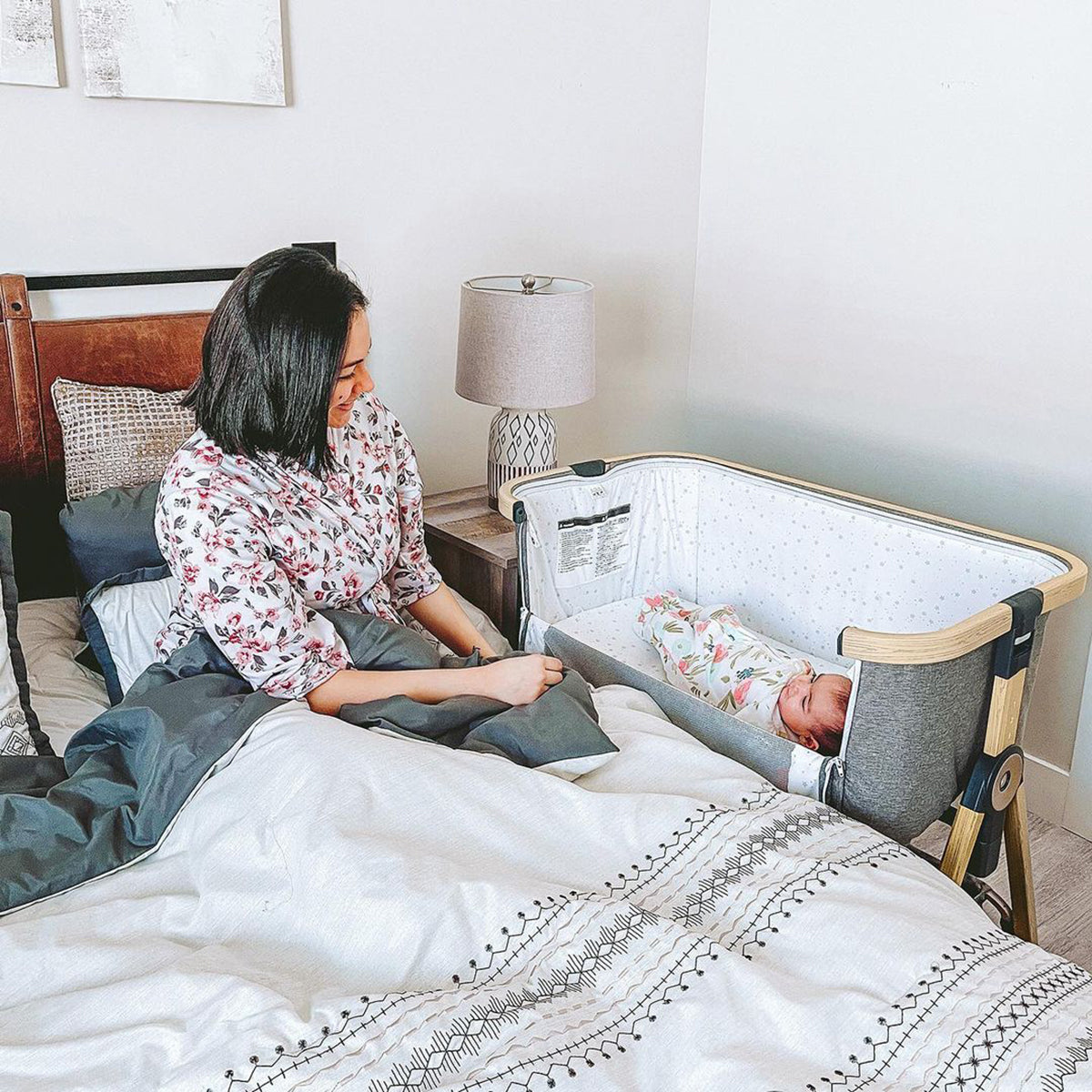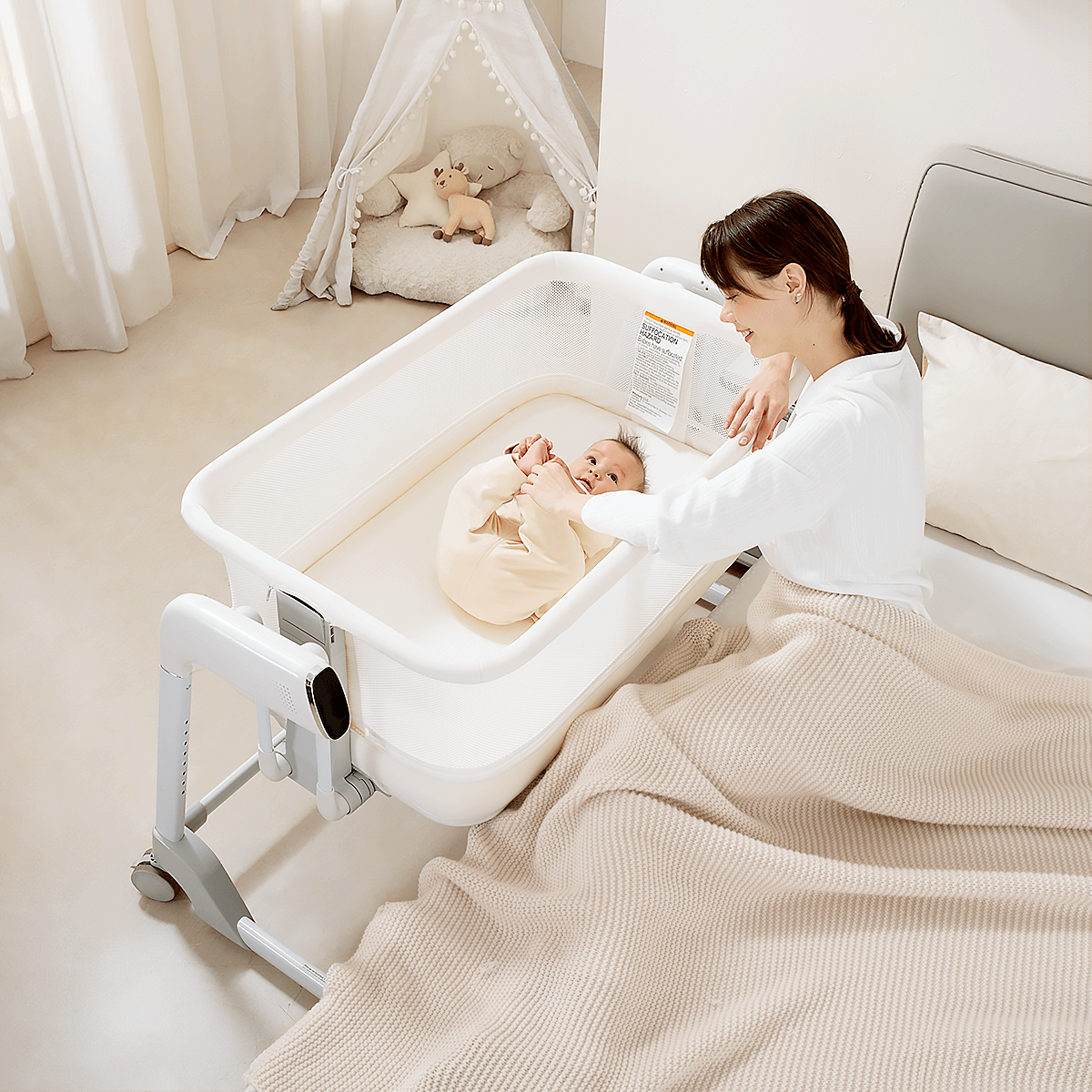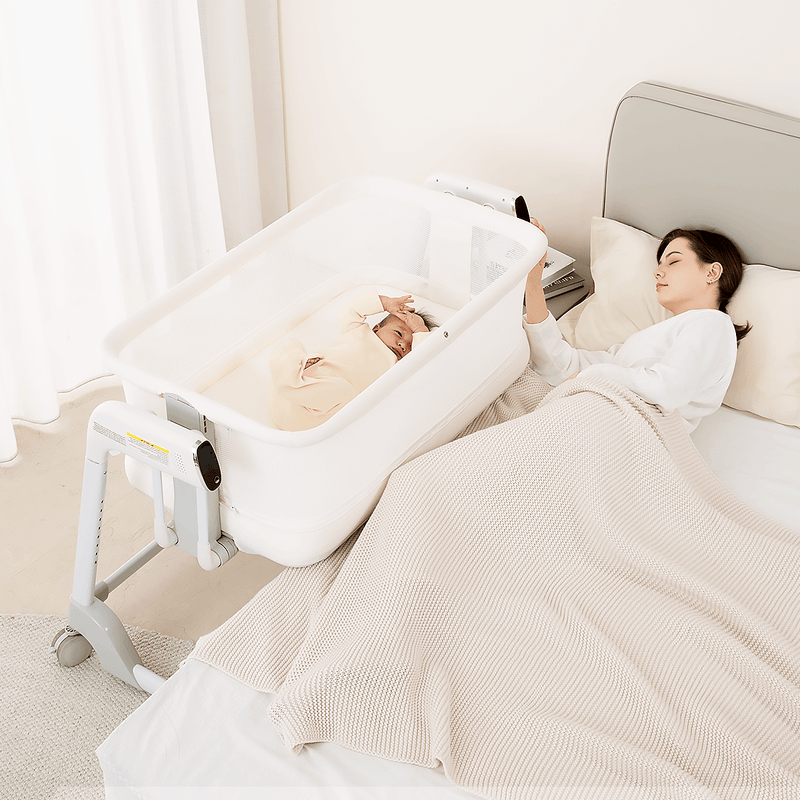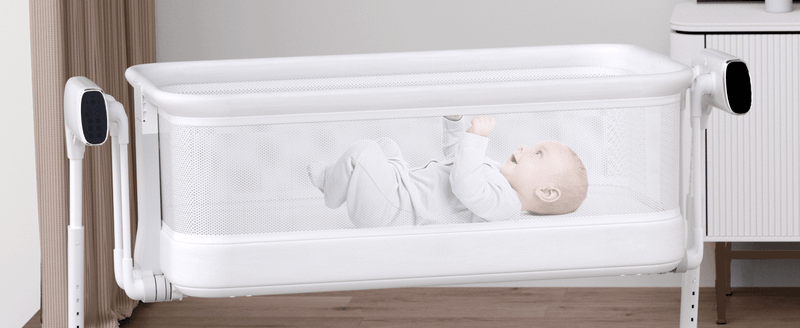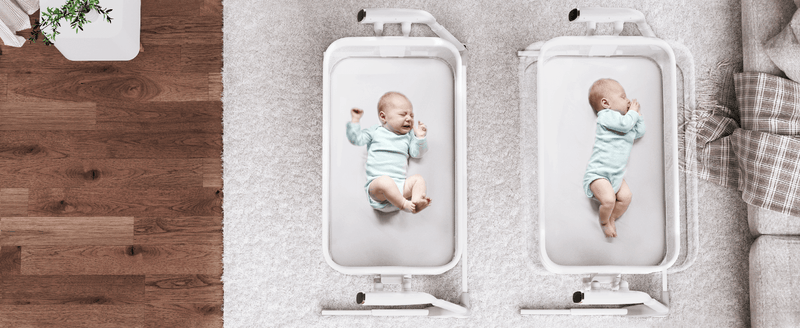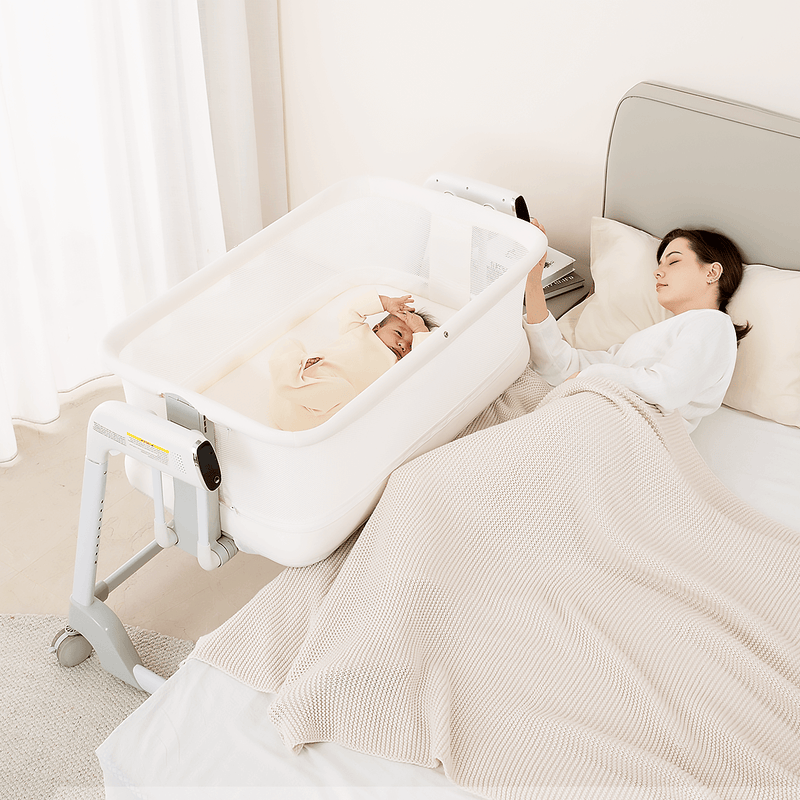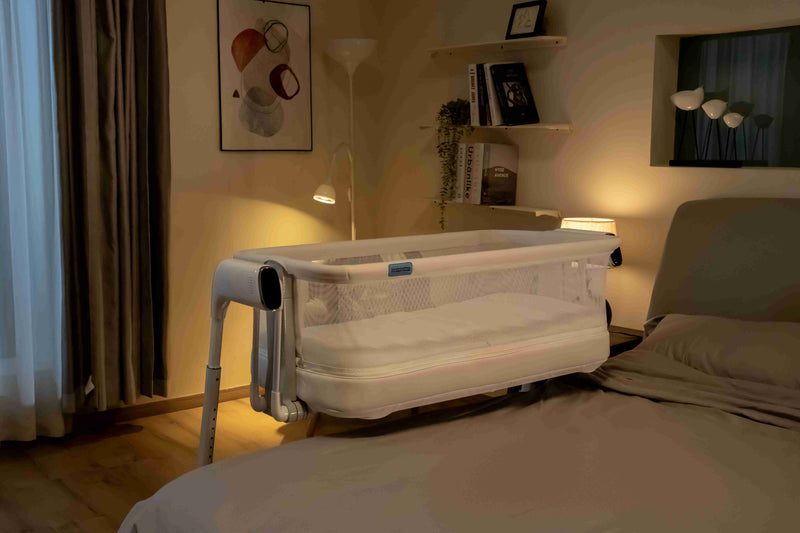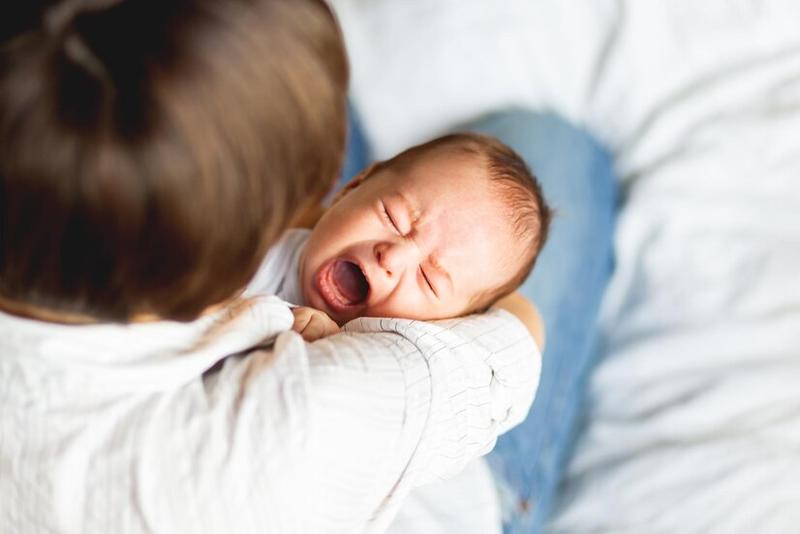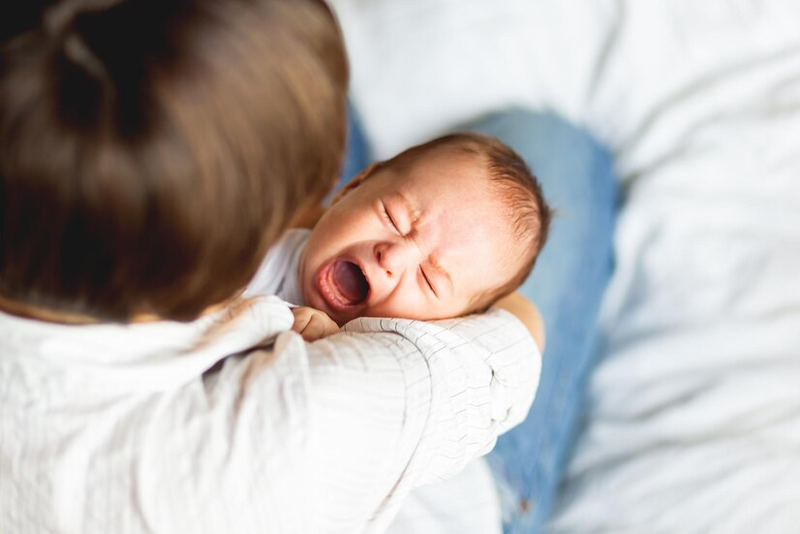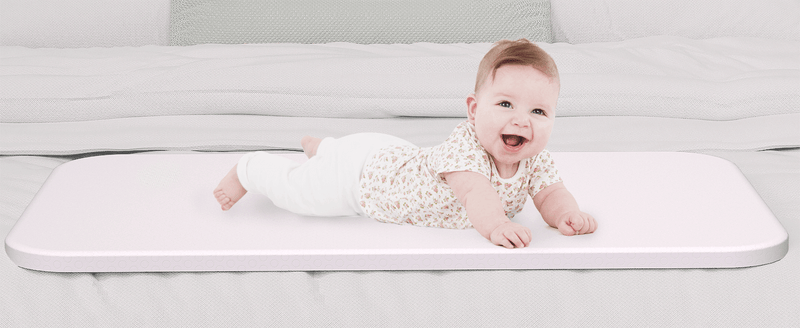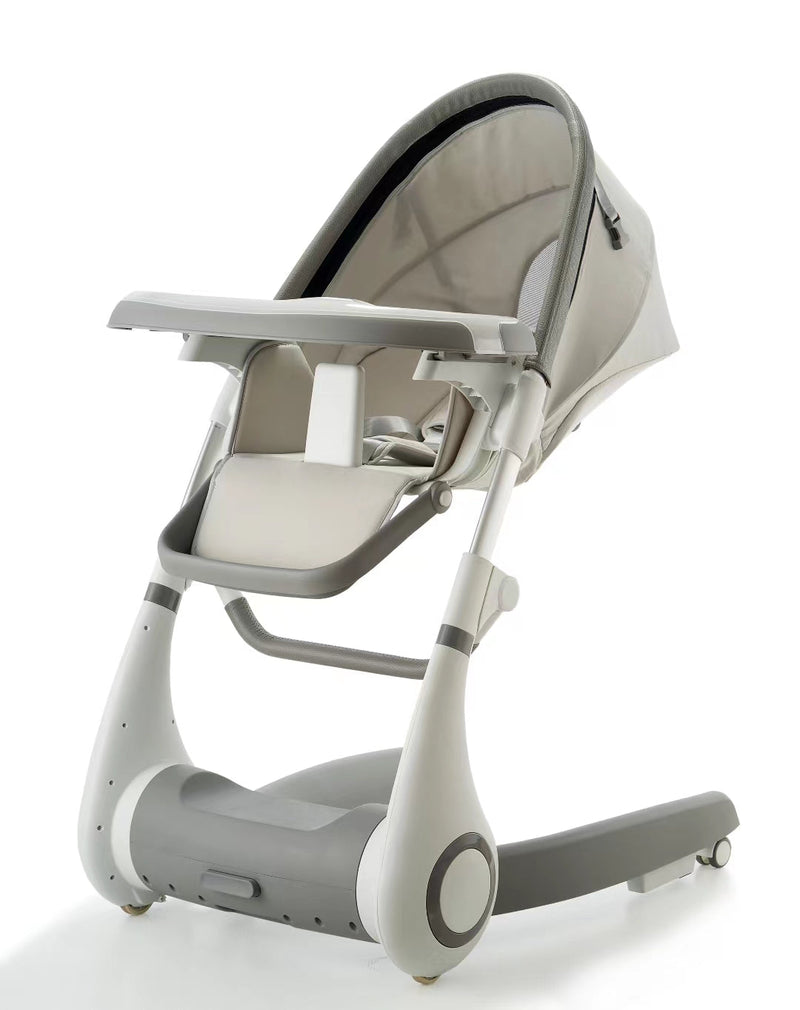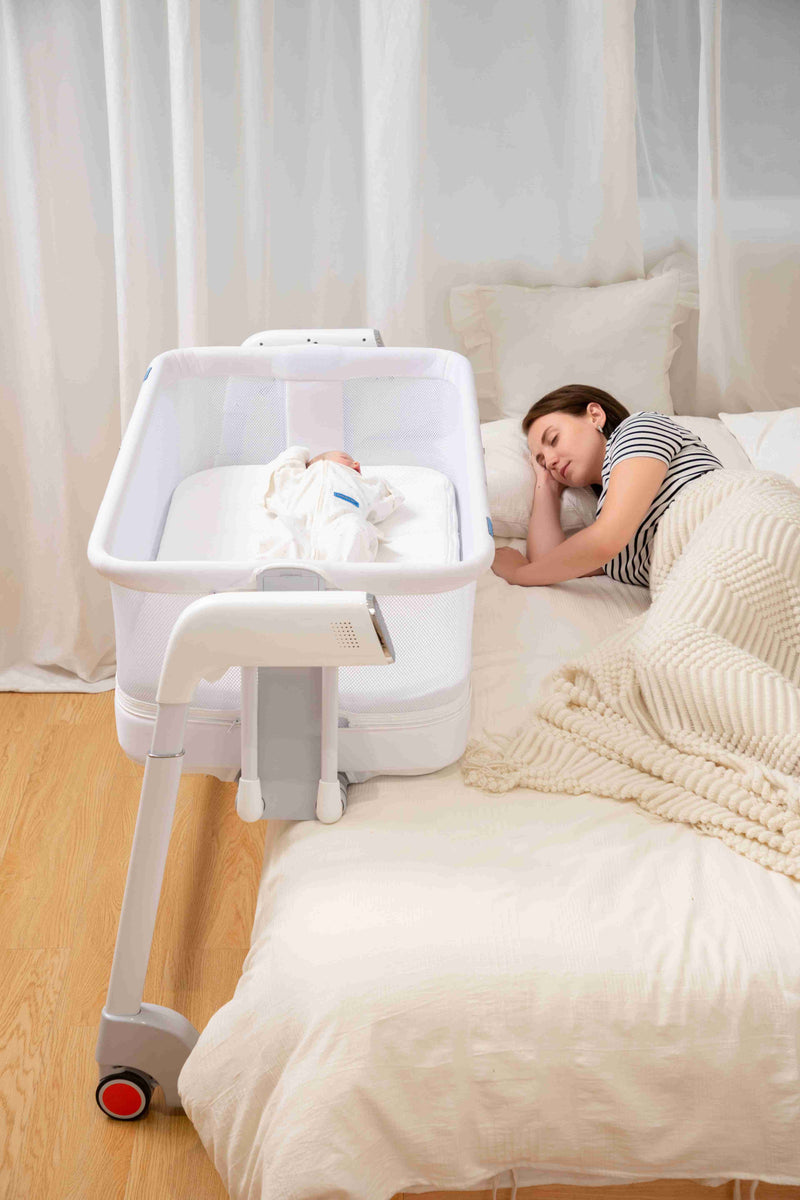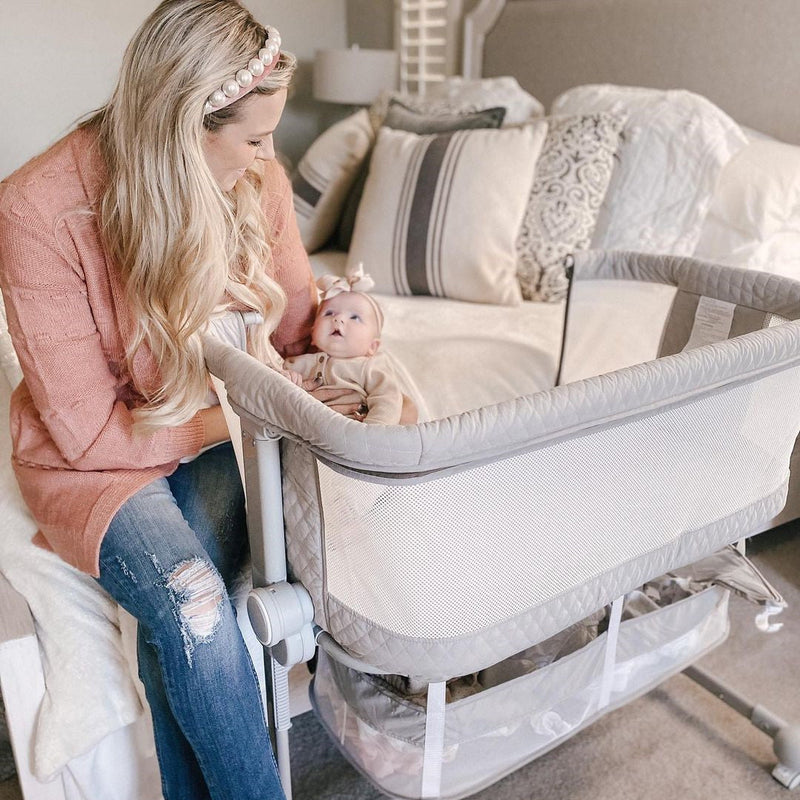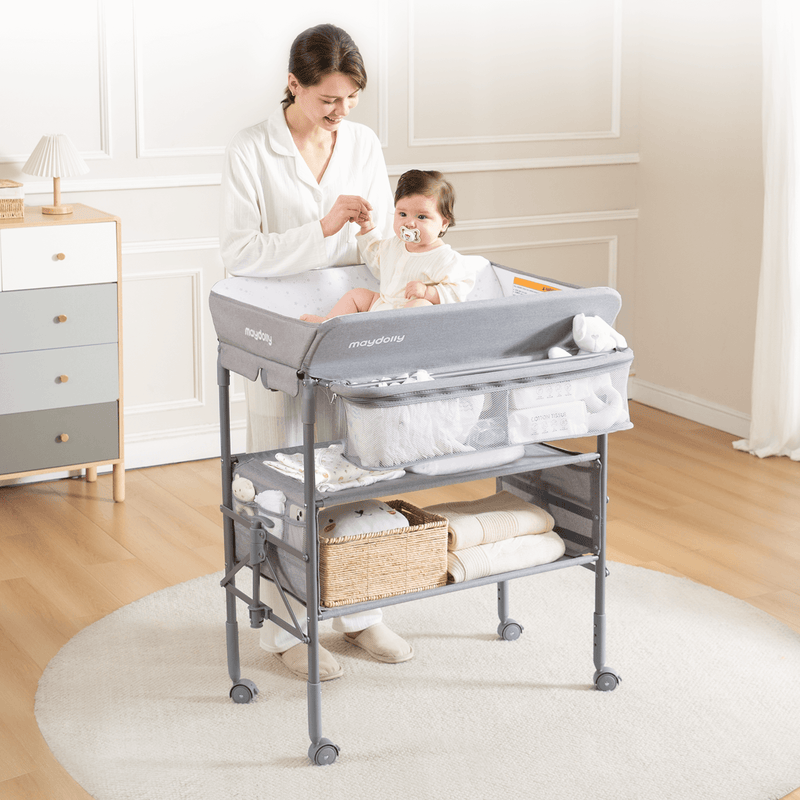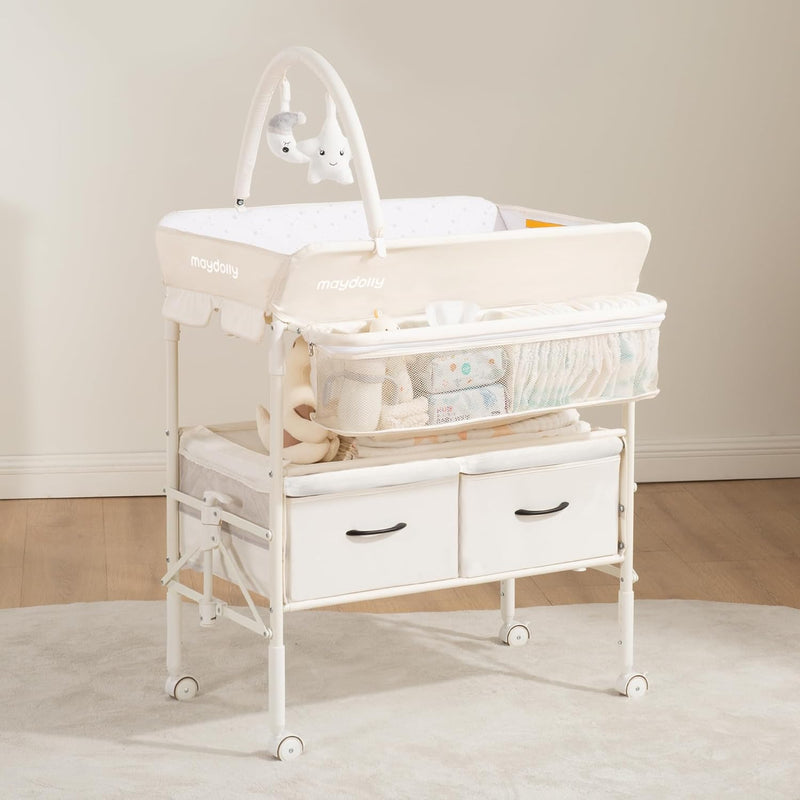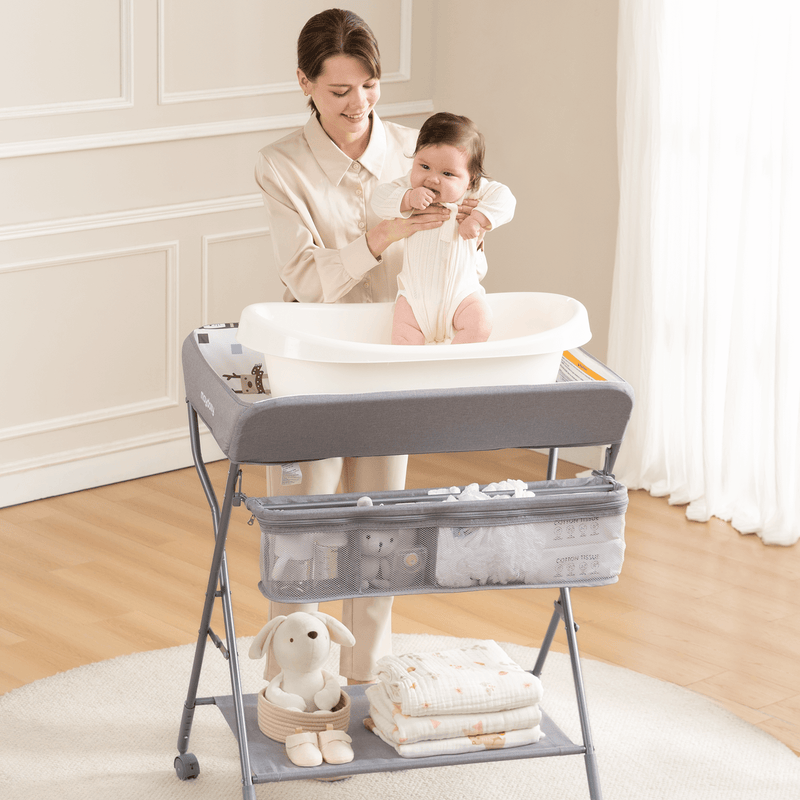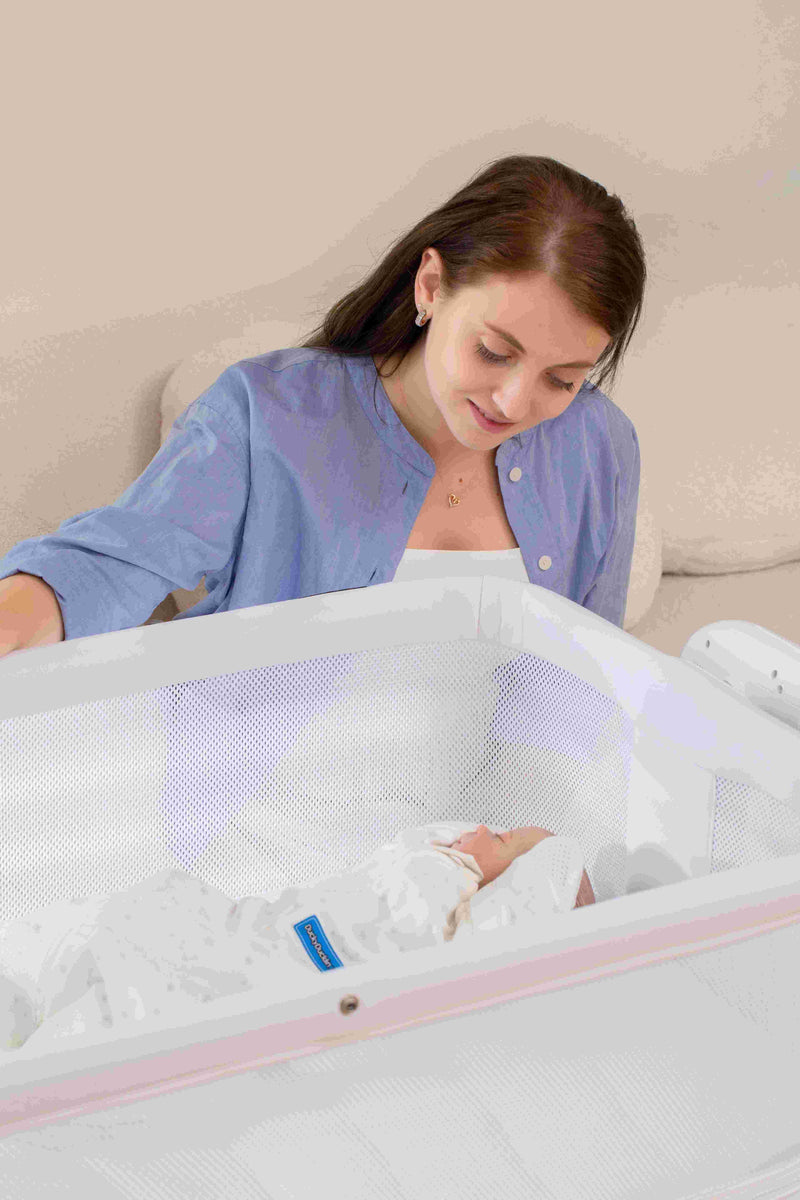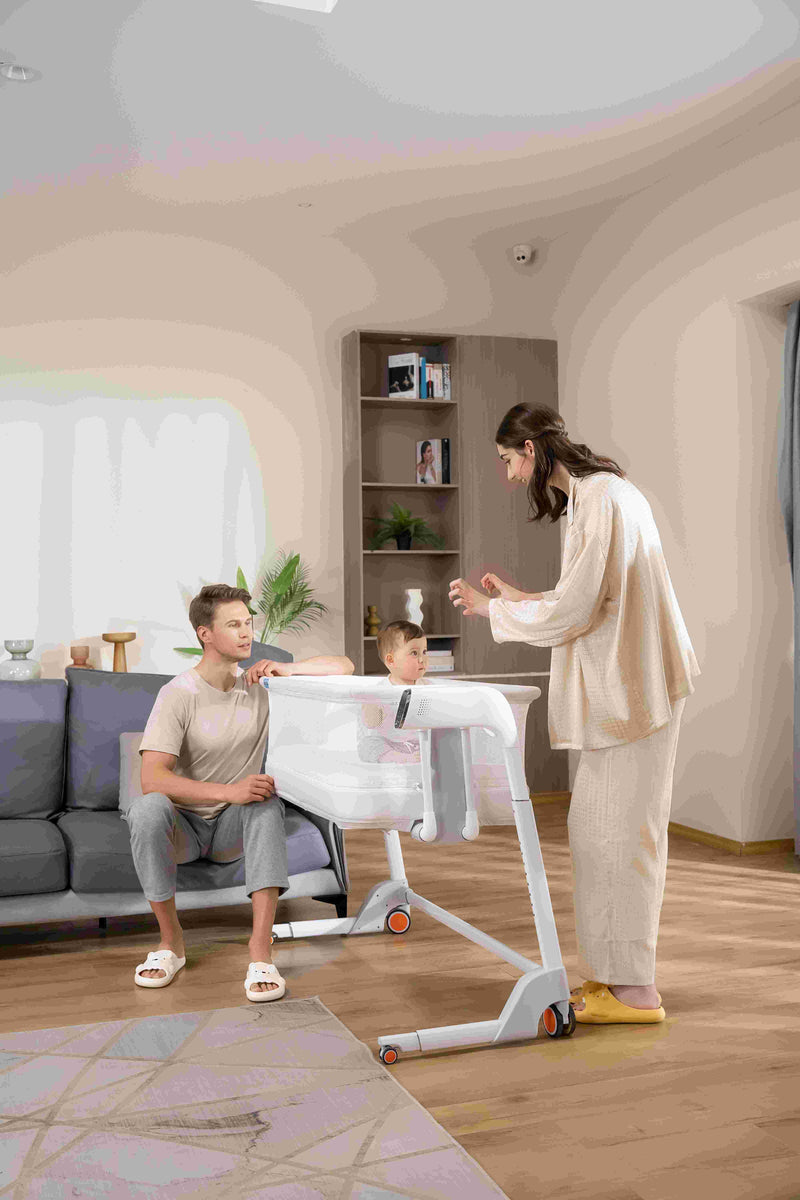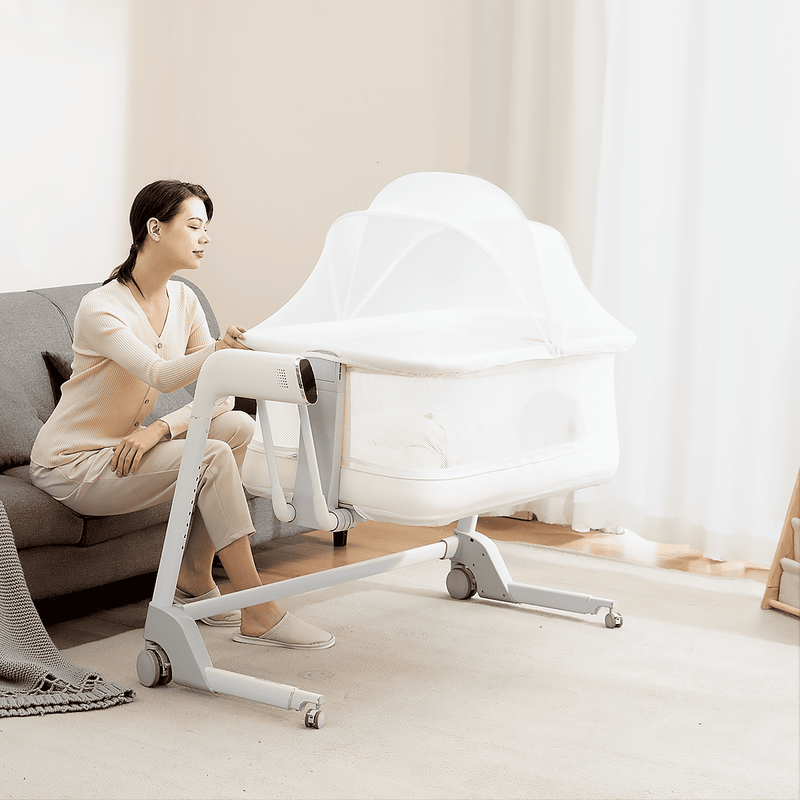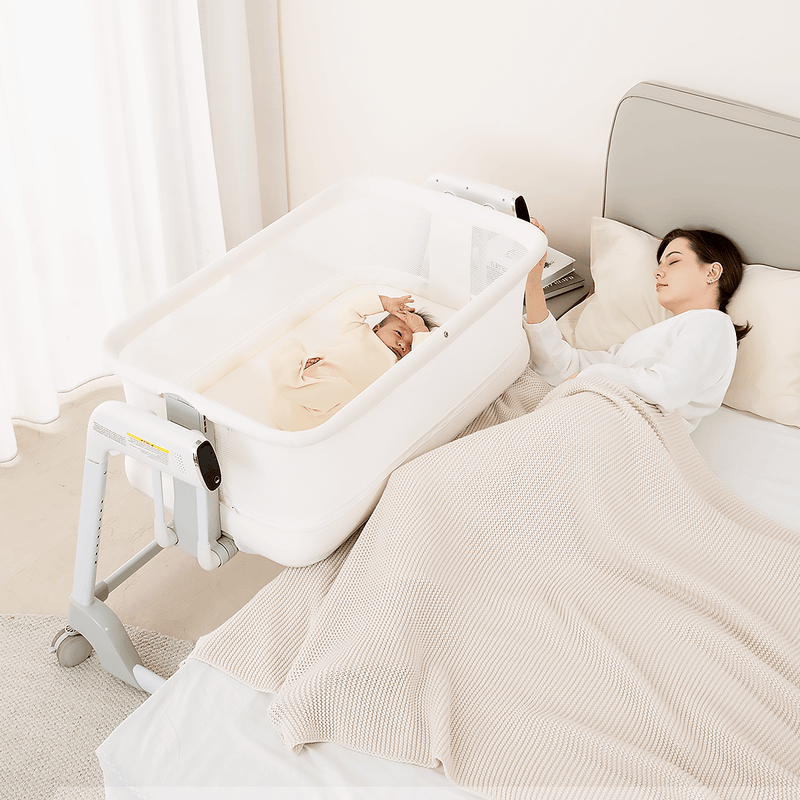Introduction
New parents are often startled when they hear their baby crying in the middle of the night, only to discover that the baby is still asleep. This confusing behavior—crying during sleep—is actually common in newborns and infants. While it may cause concern, in most cases it’s a normal part of development.
In this article, we’ll explore why babies cry in their sleep, the possible causes, when it may be a sign of something more serious, and practical solutions to help both you and your baby rest more peacefully.

Why Babies Cry in Their Sleep
Normal Sleep Cycles
Babies spend much of their time in lighter stages of sleep compared to adults. During REM (rapid eye movement) sleep, babies often twitch, grunt, and sometimes cry briefly. This is usually harmless and part of their brain development.
Transition Between Sleep Stages
As infants move between deep sleep and light sleep, they may cry out without fully waking. These transitions are common and don’t always require intervention.
Overstimulation and Dreams
Newborns process a lot of sensory input each day. Crying during sleep may be their way of releasing that stimulation, similar to how adults sometimes talk or move in their dreams.
Common Causes of Crying During Sleep
| Cause | What It Means | Typical Signs |
|---|---|---|
| Hunger | Baby needs a feeding, especially at night | Rooting, sucking motions |
| Gas or Digestion | Immature digestive system leads to discomfort | Pulling legs up, squirming |
| Second Night Syndrome | Adjustment to life outside the womb | Restless, constant feeding |
| Growth Spurts | Higher appetite and fussiness | Frequent waking, crying during sleep |
| Night Terrors (older infants) | Intense crying while still asleep | Difficult to wake, inconsolable |
| Environmental Factors | Too hot, too cold, loud noises | Crying at irregular intervals |
Is It Normal or a Concern?
Most crying during sleep is normal and self-soothing. However, you should consult a pediatrician if:
-
Crying is persistent and intense every night.
-
Baby has additional symptoms such as fever, rash, or poor feeding.
-
The crying episodes are accompanied by breathing difficulties or prolonged inconsolable behavior.
How to Help Your Baby Sleep More Comfortably
Create a Calming Sleep Environment
-
Keep the room at 20–22°C (68–72°F).
-
Dim the lights and minimize noise.
-
Use white noise machines or a smart bassinet with built-in sound to soothe fussiness.
Choose the Right Sleep Space
A portable bassinet or a 3 in 1 bassinet crib keeps your baby close and provides a secure sleep surface.
Soothe with Gentle Motion
If your baby stirs or cries, gentle rocking can help them settle back into deeper sleep. A newborn rocking bassinet offers hands-free motion that mimics parental comfort.
Feed and Burp Before Bed
Ensuring your baby goes to bed with a full tummy (and properly burped) can reduce night wakings due to hunger or gas.
Swaddle or Use a Sleep Sack
Swaddling provides a womb-like environment that reduces startle reflexes and nighttime crying.
Parent Coping Checklist
✔ Expect occasional crying—it’s often normal.
✔ Check for basic needs: hunger, diaper, temperature.
✔ Comfort with gentle rocking or white noise.
✔ Avoid overstimulation before bedtime.
✔ Use safe sleep spaces like a bassinet crib near your bed.
✔ Monitor patterns—occasional crying is fine, but seek help if episodes are intense or daily.
When Crying During Sleep May Signal a Problem
-
Reflux: Crying paired with spitting up, arching back, or discomfort.
-
Allergies or Sensitivities: Persistent fussiness after feeding.
-
Illness: Fever, congestion, or sudden increase in crying intensity.
-
Night Terrors (in older babies): Unlike normal fussing, night terrors involve screaming, sweating, and difficulty waking.
Final Thoughts
Crying during sleep is usually a normal part of infancy, connected to developmental changes, feeding needs, and light sleep cycles. By creating a calming environment, using safe and soothing tools like a smart cradle, and monitoring for any concerning signs, parents can navigate this stage with confidence.
Remember: most babies outgrow frequent crying during sleep as their sleep cycles mature—usually within the first few months. Until then, patience, routine, and the right sleep setup can make nights smoother for the whole family.

